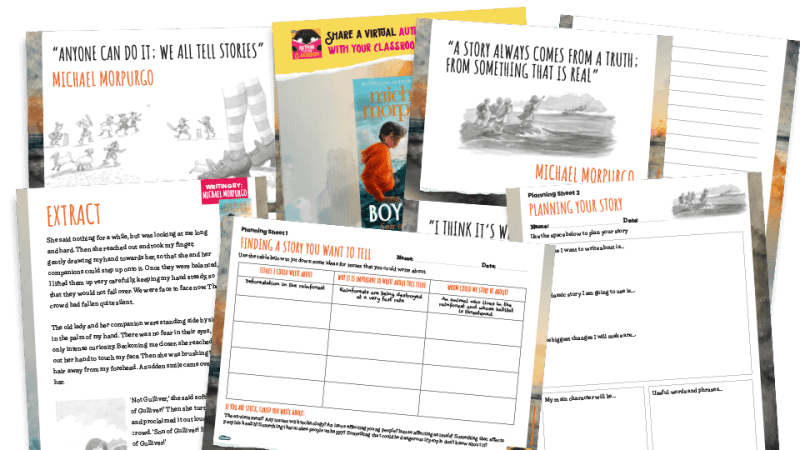KS2 newspaper report – Best activities & resources

Extra! Extra! Boost students' non-fiction writing skills with these newspaper report templates, guidelines, formats, tips, worksheets and more…

- by Teachwire
- Classroom expertise and free resources for teachers
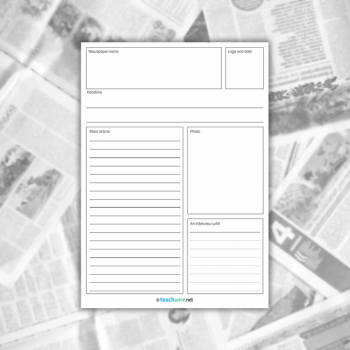
Whether you’re a seasoned pro or a fresh face in the teaching world, these creative and educational KS2 newspaper report ideas and resources will not only inspire your students but also make learning about news reporting an exciting adventure.
So, let’s dive in and transform your classroom into a bustling newsroom…
Newspaper writing activity ideas for KS2
Investigate word choice and non-fiction writing with your very own school newspaper project, explains teacher Karen Hart…
In my school, this KS2 newspaper report activity formed part of a ‘looking at information texts’ literacy project. The activity delivered great results. Children contributed imaginative language to stories that were both inventive and genuinely funny.
Preparing for the activity
Although many newspaper reports are not suitable for general reading at KS2, most local papers or specialist children’s newspapers contain plenty of suitable content.
Prior to this activity, look at some newspapers in detail and talk about their constituent parts, such as:
- features
- advice columns
- sports section
- business news
- horoscopes
- adverts
Information texts
Start with a whole-class activity. Look at a few news stories covering a range of subjects. Our session included a story about the London Marathon; one about healthy eating and a report of a T-Rex skeleton that was going to auction.
Lead a discussion. Encourage children to talk about why these subjects are interesting to people. How does the language used make the written stories seem both interesting and exciting?
Exciting writing
Next, look at these stories in more detail. Write lists of the words children think were chosen specifically to add interest.
For example, our T-Rex story included words such as menacing pose, and bloodthirsty stance. Get the pupils to work in groups to write their own short news story using the title, ‘Giant, hairy creature spotted in [your location]’. Aim to make it as exciting as possible.
Each group might have a different take on the topic. You can also do this as a whole-class activity.
Write a KS2 newspaper report
Now, working in groups of two to three, give the children an envelope containing two short news story cuttings, plus two unrelated newspaper picture cuttings.
We used stories about ‘King Charles visits Dunfermline’ and ‘Twins grow record-breaking pumpkin’, plus pictures of a squirrel and a wedding cake.
Support the pupils to write their own short news stories combining at least two of their given cuttings.
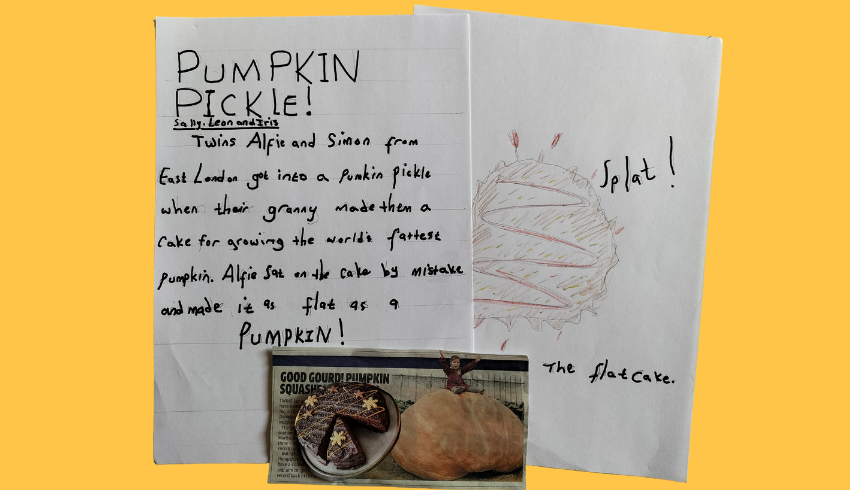
Remind them to consider elements they’ve already covered, such as language choice, and to think about how they can combine seemingly unrelated things (such as a squirrel and King Charles’ Dunfermline visit) in a funny or unexpected way.
Structuring writing
To help structure their stories, give children a simple framework to work with, and display it on the board.
- headline (title)
- byline (names of people writing the article)
- location (explains where the story takes place at the beginning of the story)
- story (the main part – who, what, when, why, and how
- supporting information (any extra facts that are relevant)
Make sure to talk about all these terms and what they mean.
Newsreader activity
Pupils can create their own images to accompany their news stories, and then finish off the workshop with a fun newsreader activity.
Staying in their groups, ask children to pretend to be newsreaders, taking turns to read their stories to the rest of the class. Be mindful that not everyone likes to read in front of others.
For the finale, work to combine all the news stories into a class newspaper.
Karen Hart is an independent drama teacher, author and freelance writer.
KS2 newspaper report resources
Newspaper front page template
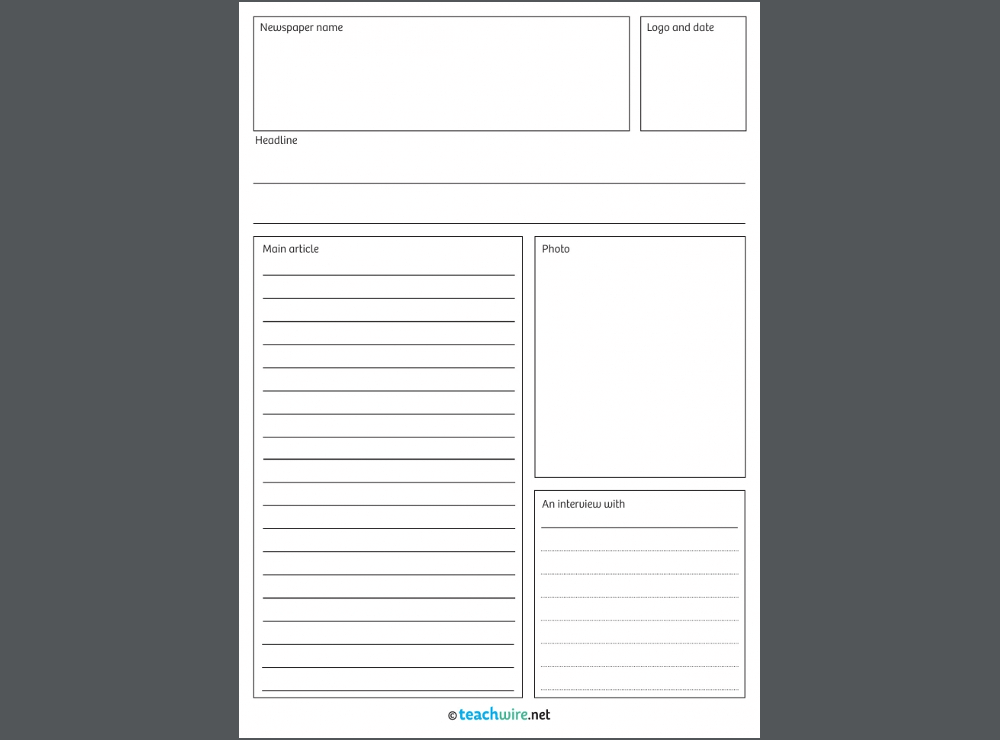
When it comes to writing a KS2 newspaper report, a great place to start is to have a free, printable template to work from. So we’ve created one for you to download and print.
BFG newspaper report
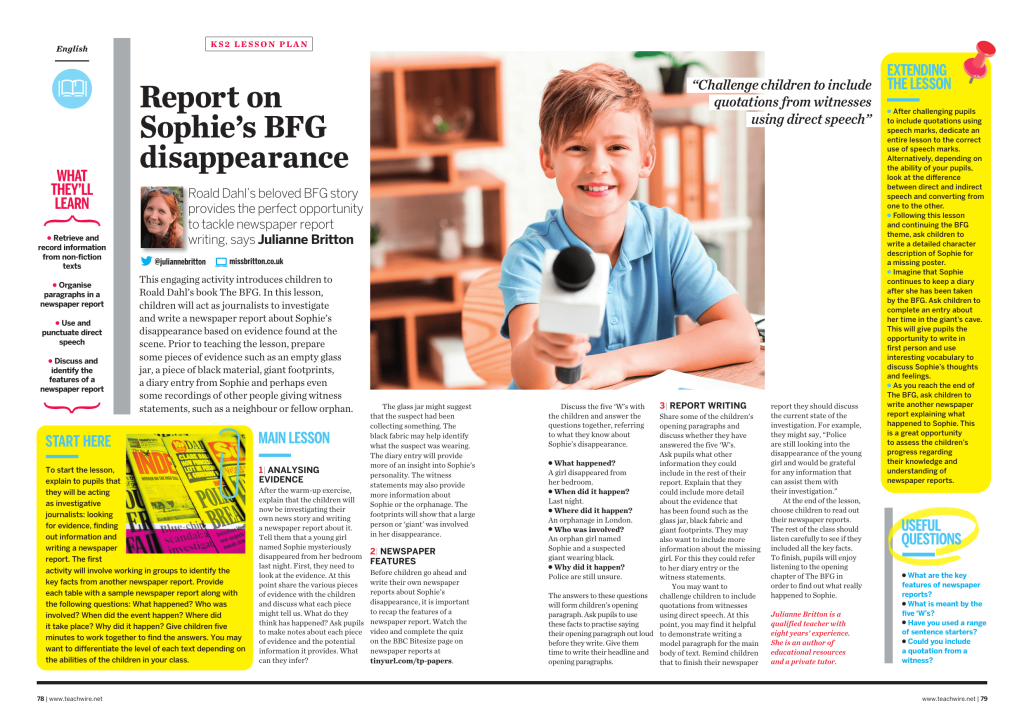
Roald Dahl’s beloved BFG story provides the perfect opportunity to tackle newspaper report writing. This engaging activity involves acting as journalists to investigate and write a newspaper report about Sophie’s disappearance based on evidence found at the scene.
Trending
Write a magical Harry Potter report
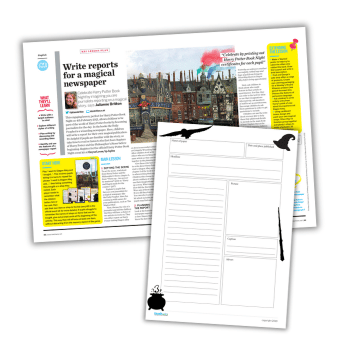
Enliven the process of teaching newspaper reports for KS2 by imagining you are journalists reporting on a magical story within the world of Harry Potter with this free lesson plan.
Topical Tuesdays with First News

If you want to expose children to the language and layouts of newspaper but you’re worried about them coming across unsuitable material, try a specialist children’s newspaper such as First News.
Literary resources website Plazoom has a large collection of news story clippings from the paper that you can download for free, alongside Topical Tuesdays activity sheets that help you explore the chosen news report as a class.
‘Hack’ and edit websites
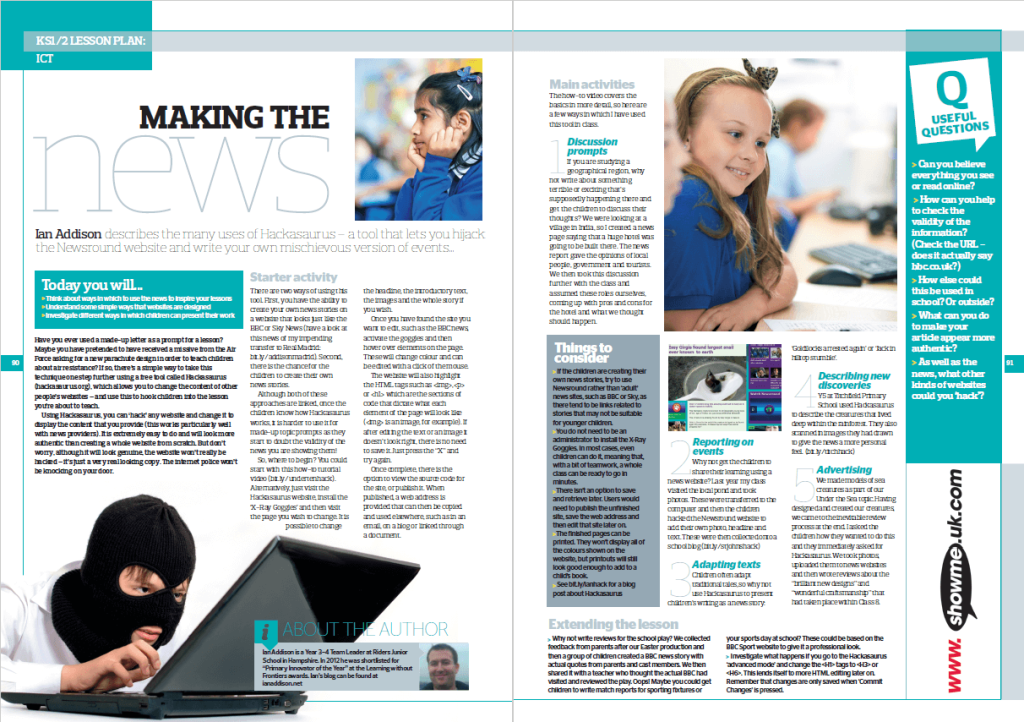
This free lesson plan uses a free tool called Hackasaurus, which allows you to change the content of other people’s websites.
Using Hackasaurus, you can ‘hack’ any website and change it to display the content that you provide (this works particularly well with news providers). It is extremely easy to do and will look more authentic than creating a whole website from scratch.
But don’t worry, although it will look genuine, the website won’t really be hacked – it’s just a very real-looking copy. The internet police won’t be knocking on your door.
Newspaper report presentation with video

In this lesson from Oak Teacher Hub’s Spiderman unit, pupils will revise all the features of a newspaper report and write their own. The resource contains a presentation and a video.
Layout devices teaching sequence
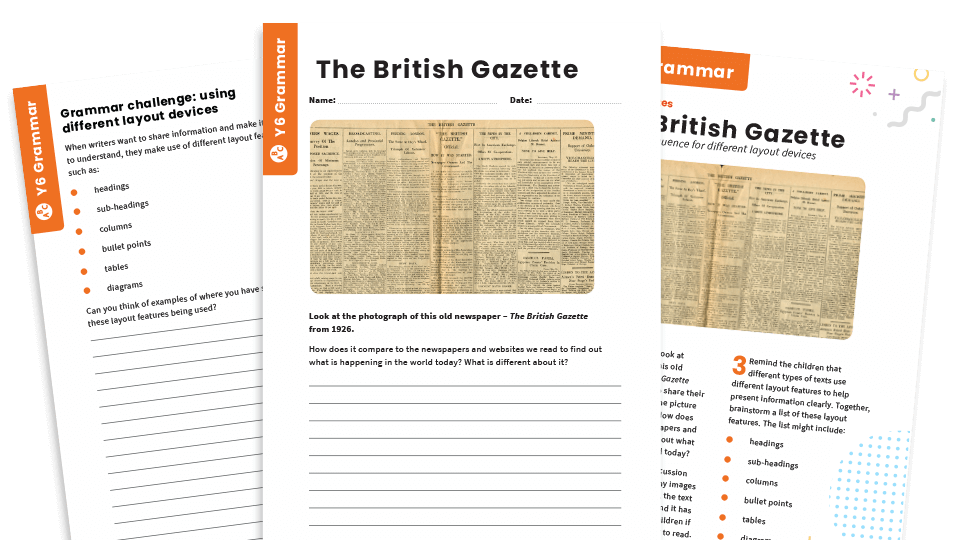
This KS2 grammar teaching sequence for layout devices from Plazoom helps children familiarise themselves with different types of newspaper report layouts, before trying the techniques out themselves to present three key facts about a topic they know well.
Features of a newspaper report
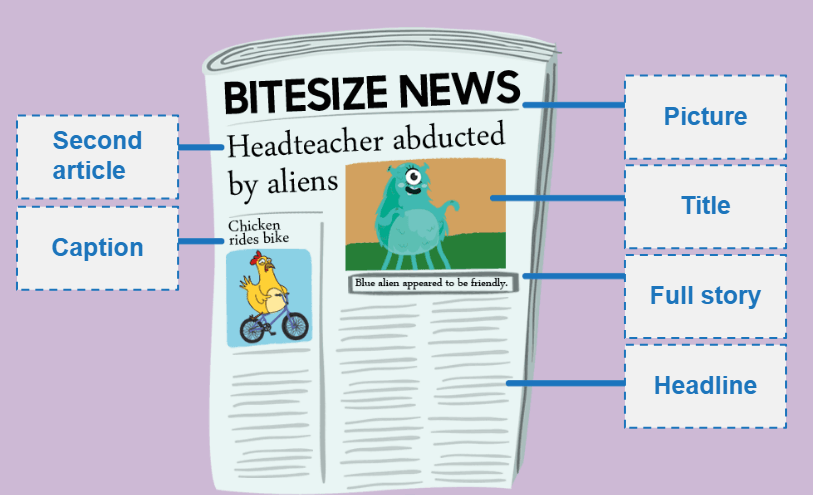
This BBC Bitesize guide goes over all the basics about newspaper articles in a short, snappy video, plus there’s a quick interactive activity where children label a front page with the correct terms such as ‘headline’, ‘caption’ and ‘title’.
News report writing tips

This post from First News features ten top tips for writing a newspaper report to help pupils perfect their articles.
Fact or opinion worksheet
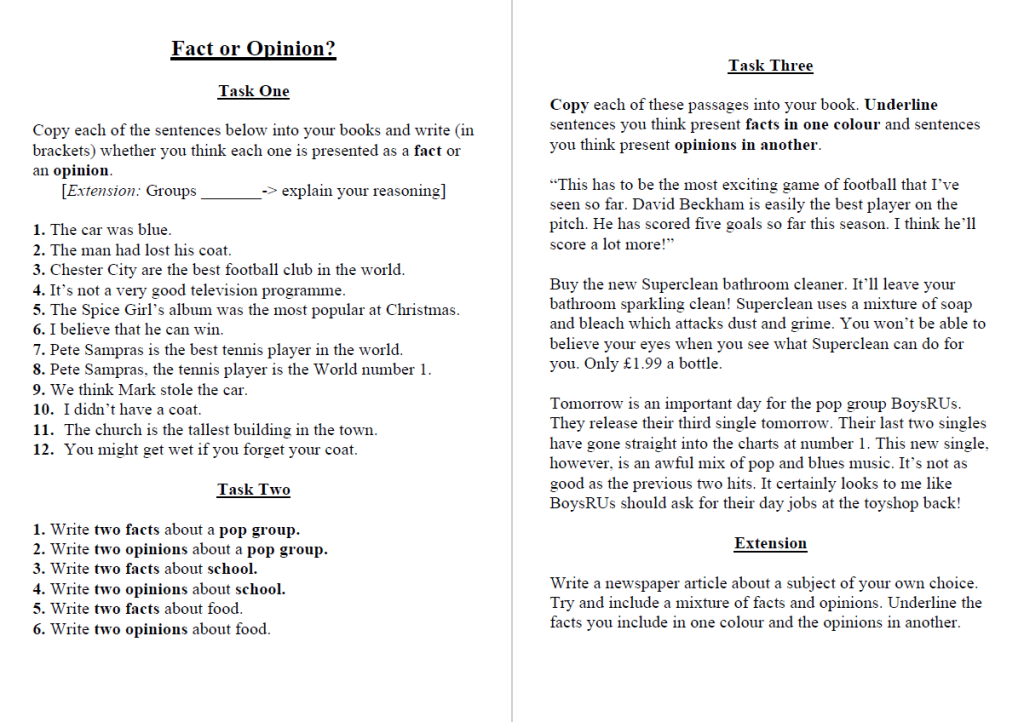
This simple worksheet is divided into three sections. The first presents a number of statements for pupils to decide whether they’re fact or opinion.
The second asks them to write their own facts and opinions on various things. The third features three passages where they need to pick out the facts and opinions.
Plus, there’s an extension activity that asks them to write their own newspaper article and then underline the facts and opinions in different colours.
Analyse the presentation of newspaper articles
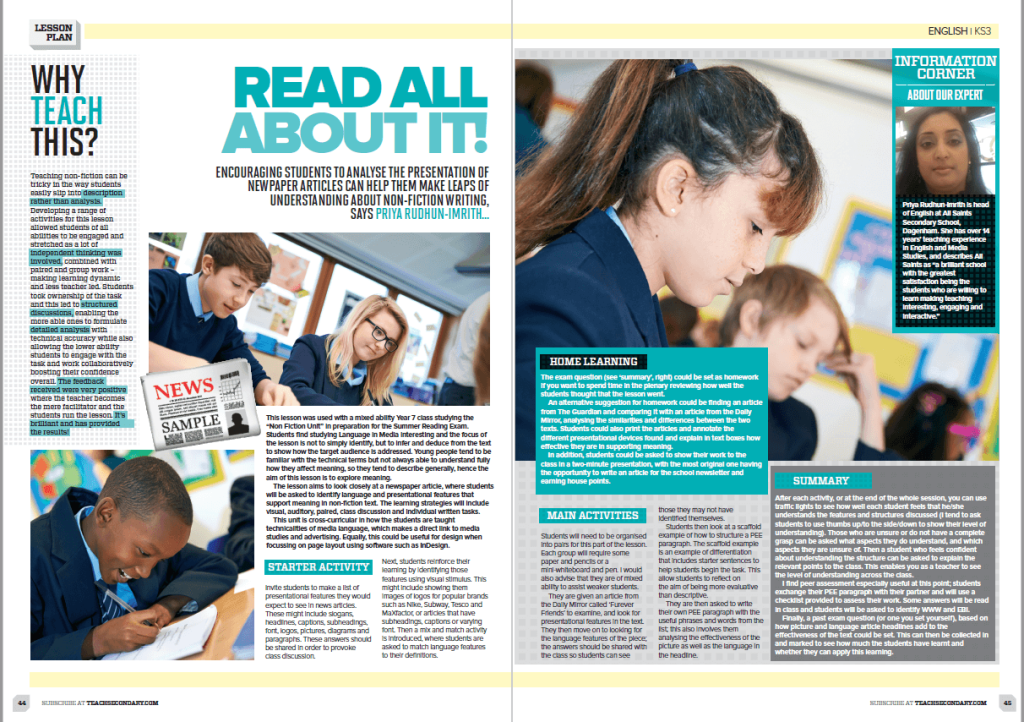
This lesson plan was designed for a mixed-ability Year 7 class, so should be easily adaptable for upper-KS2. It involves looking closely at a newspaper article and identifying language and presentational features that support meaning in non-fiction text.
Opening lines
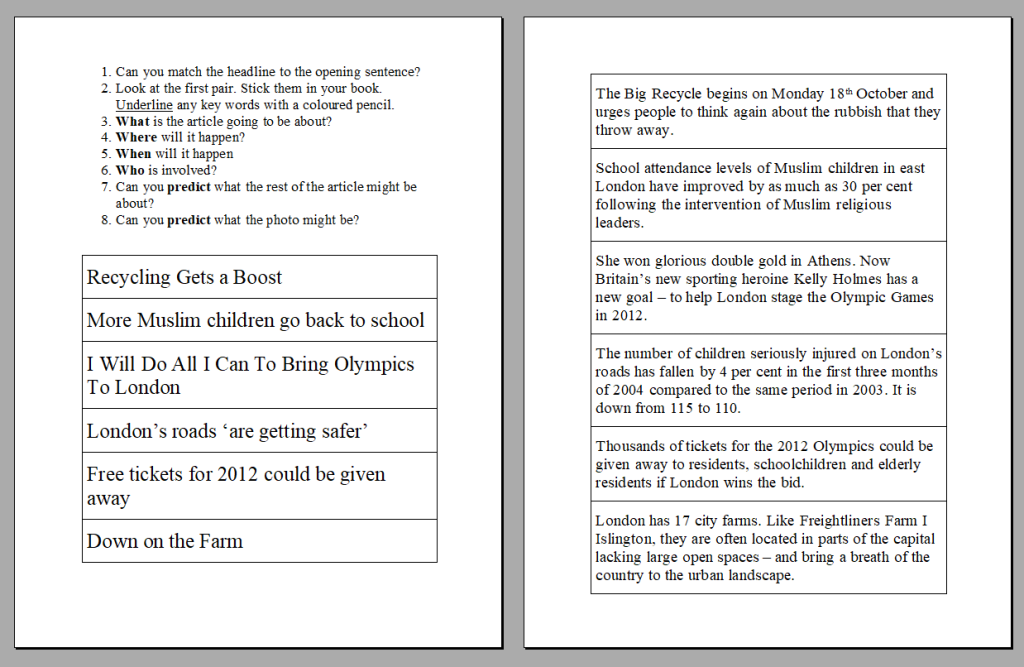
This Word document features a number of headlines and opening sentences to newspaper articles and tasks students to match them together.
It then gives them a number of important questions to answer and tasks to do, from picking out keywords to considering what they think each article will be about or what the main photo might be.
Newspaper reports example articles
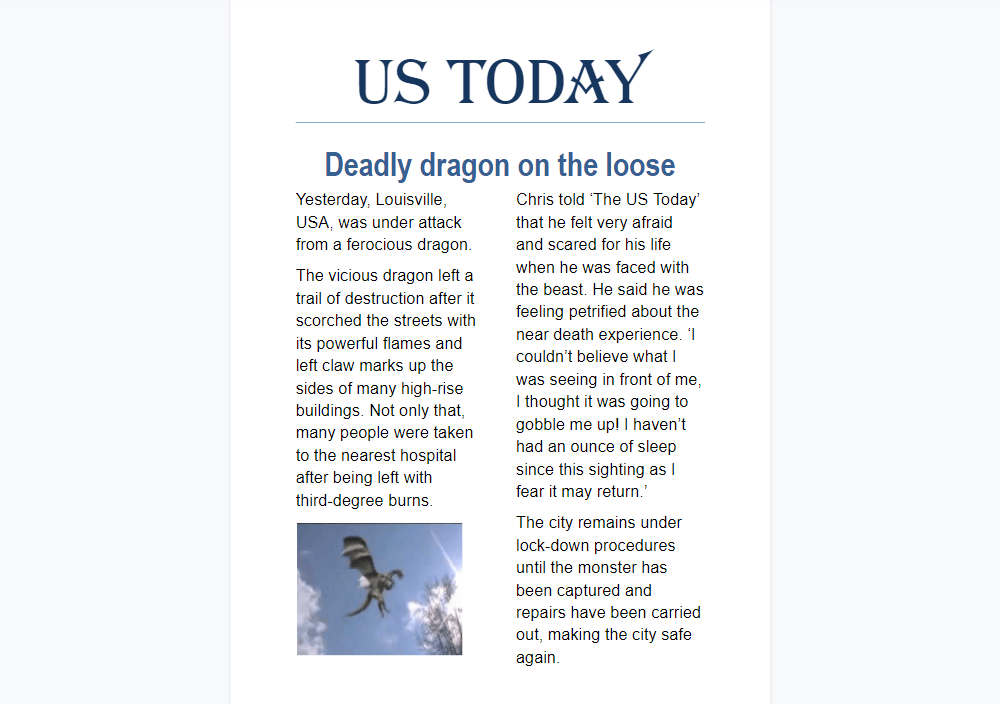
For a wealth of free downloadable reports and recounts, head over to Literacy Wagoll where you’ll find reports of dragons on the loose and Jack climbing the beanstalk, as well as reports on topics such as WW2 and the Rugby World Cup final.
More activities
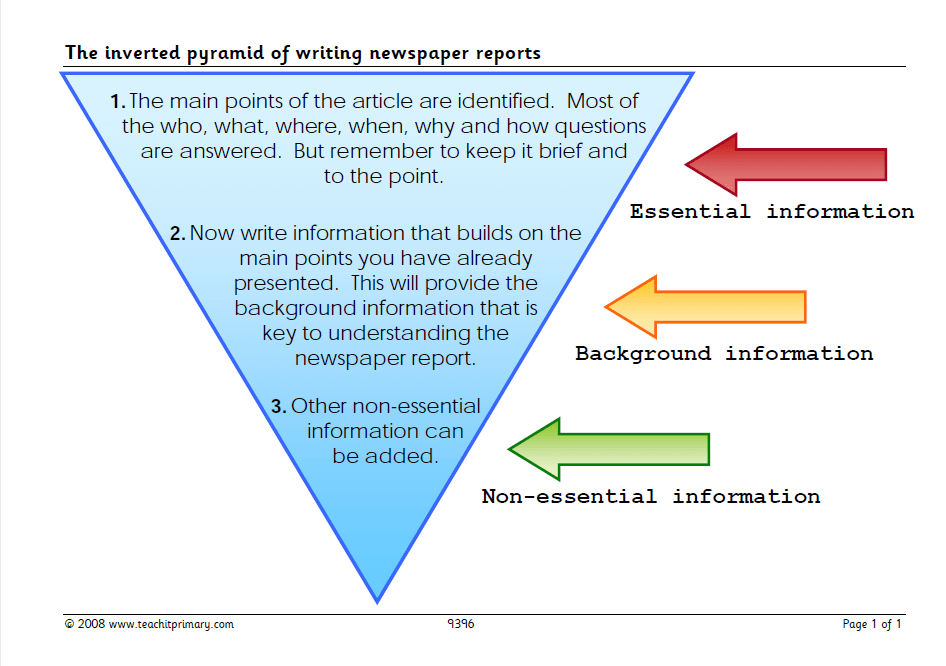
Over at Teachit Primary there’s a great selection of newspaper-related activities for KS2.
There’s this one that explains the concept of the inverted news pyramid, where all essential information is stacked at the front of the article.
There’s this one on avoiding ambiguity, and one on refraining from repetition, plus this one on the art of alliteration in headlines.





